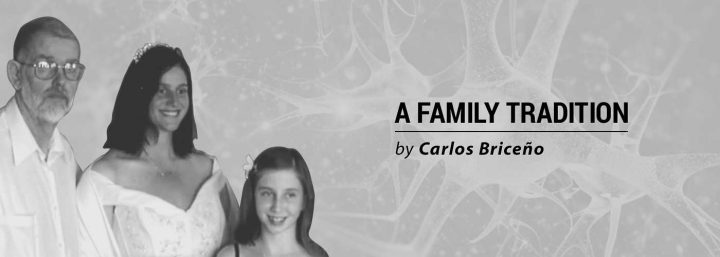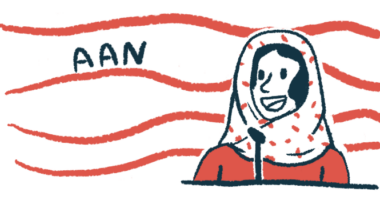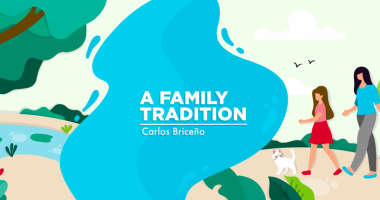Hugging Is One of the Things I Miss the Most

The first time I met my wife, Jill, she told me she wasn’t comfortable with “PDA.” Being a smart aleck, I asked her why she didn’t like personal digital assistants. (The old PalmPilots were known as PDAs.) She flashed the patient smile of someone who knew it would require a lot of patience to put up with a smart aleck. She said that no, she had meant public displays of affection.
I said, “That’s interesting.” And we moved on to something else because I didn’t know her well enough to ask her more.
When I went home, I thought about what PDA is. I am not inappropriate, but I am a fan of a good hug. I am Hispanic, after all. Could Jill really not like things like hugs in public? Will she hold hands with someone? Will she let someone kiss her hello or goodbye? I came to the conclusion that I would have to ask her what she meant by PDA.
When we talked about it later in our relationship, she made it clear that any romantic touching made her uncomfortable. I understood, but I am a sensory seeker. I crave touch, and if she doesn’t like that, how could I handle not touching? Instead of trying to push the subject, I asked her if she would be willing, very slowly, to change that for me. She said she would try. She was good to her word, as she has grown to tolerate my affection in public.
A couple of weeks ago, she was sick, so we socially distanced in our home. After she recovered, she actually said this: “I missed your hugs.” I almost fell out of my chair. You miss what? Hugs? Really? Her response was simple: “Yes.”
COVID-19 has taken our hugs away, and it’s unfair. She was right. I missed hugs, too. Not just for the sensory satisfaction, but for the connection that I feel when I hug her. She said she missed them because hugs are scientifically proven to be good for us.
Hugging has been studied over the years, and a 20-second hug can lower your stress levels. A hug can show your loved ones that you support them. It can help boost your immune system, your heart health, and even make you happier. Hugs have even been shown to help reduce pain and fear by increasing a chemical called oxytocin. Oxytocin causes a reduction in blood pressure and the stress hormone norepinephrine.
As we go forward with our new social distancing, I hope the hug is something that will eventually come back. Hugs are the perfect way to tell someone you love and support them. Without hugs I don’t think I could have gotten through my wife’s Huntington’s disease diagnosis and all the other things in my life, good and bad. Hugs are my way of saying that I am there for the other person, and my hope is that one day we will all be able to hug again.
***
Note: Huntington’s Disease News is strictly a news and information website about the disease. It does not provide medical advice, diagnosis, or treatment. This content is not intended to be a substitute for professional medical advice, diagnosis, or treatment. Always seek the advice of your physician or other qualified health provider with any questions you may have regarding a medical condition. Never disregard professional medical advice or delay in seeking it because of something you have read on this website. The opinions expressed in this column are not those of Huntington’s Disease News or its parent company, BioNews Services, and are intended to spark discussion about issues pertaining to Huntington’s disease.







Comments